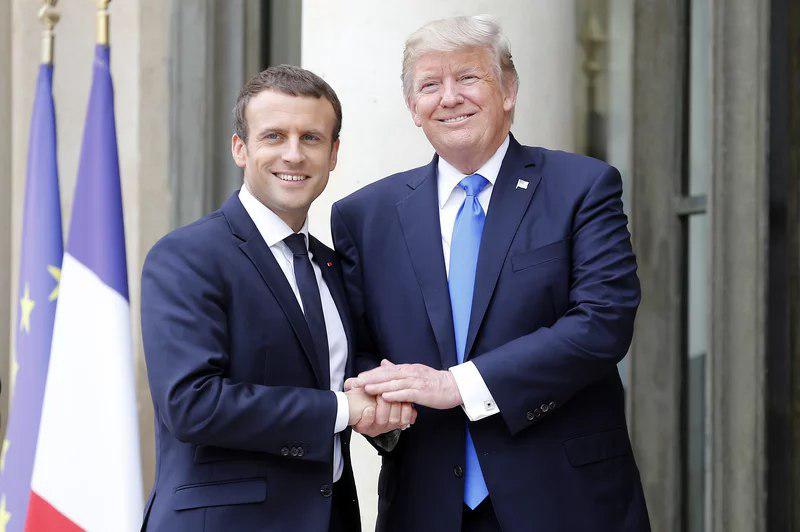Political commentator Nosratollah Tajik, in a recent article published by the Persian-language Khabar Online news website, has weighed in on France’s efforts to preserve the Iran nuclear deal by appeasing the US President and putting Iran under pressure.
Amid such efforts, the question is, are we edging closer to the implementation of a second Iranophobia project pushed by the issue of ballistic missiles, human rights issues, and so on? Is Iran going to give up and sit down for talks on issues demanded by Washington and some European states while the country has not enjoyed the tangible privileges of the JCPOA in economic, political and security fields?
Tajik’s opinion piece is a short reply to the two serious and elaborate questions mentioned above. The full text of the article follows:
France’s interest in having more interaction with Iran is mostly due to economic issues, not ensuring Iran’s political and security interests, and not even Paris’ admitting Iran’s regional role and accepting that Iran is entitled to enjoy the privileges of its regional investments. So, France’s role in Trump’s illogical stances on the JCPOA emanates from the aspirations of a young president who wants to take Iran to heaven by force! His interest in keeping Trump in the JCPOA seems to be more than that of Iran. Although Iran wouldn’t like the JCPOA to fail, Trump’s withdrawal from the international treaty won’t mean the end of the world, especially when he is a person who has not completely lived up to his commitments under the agreement. Trump has not only adopted negative positions, but has caused the spectre of uncertainty to loom large over the political and economic landscapes. He has also sabotaged certain efforts on some occasions. Therefore, Trump’s withdrawal from the JCPOA would be a response to his allies, namely Saudi Arabia and the Zionist regime of Israel, and in line with fulfilment of his election pledges on the one hand, and on the other it would be part of a game to gain concessions.
The JCPOA was Iran’s new approach in international transactions, and what ensured Iran that it could trust an agreement with the West was Europe’s presence from two perspectives.
1) Europe is the Middle East’s first security circle where Iran has interests, influence and investment. Moreover, European countries have a proper understanding of the consequences of unrest in that region.
2) Iran’s age-old distrust in the US as a country which neither has a long history of foreign relations nor has a proper understanding of the potentialities of, and the situation and challenges in the Middle East.
So, the Europeans should not be left alone, and both European countries and the European Union should play their roles in ensuring stability and security in the region.
In fact, the repercussions of insecurity in the Middle East will, in the first place, bear down on Europe, not the US, and this is a path to engage with Europe.
Many analysts expected that problems would emerge between Europe and the US from the outset of Trump’s coming to power. The same analysts believed it would be unlikely that the US and Europe would reach an agreement that would be against Iran’s interests as far as the JCPOA is concerned, but expected that Washington and Europe would see eye to eye in other areas such as human rights and missile issues by imposing some restrictions and sanctions. The point is that Europe wants the JCPOA and the US together, so it has to go both ways and settle for the golden mean at the end of the day.
Unfortunately, due to the lack of transparency in the positions adopted by world powers, there is uncertainty over the extent of the US and Europe’s demands and of the maximum pressure to bring Iran to the table to renegotiate the JCPOA or discuss other issues such as Iran’s missile program. Here, Iran should become more active and get closer to Europe and countries which are willing to work with the Islamic Republic.
